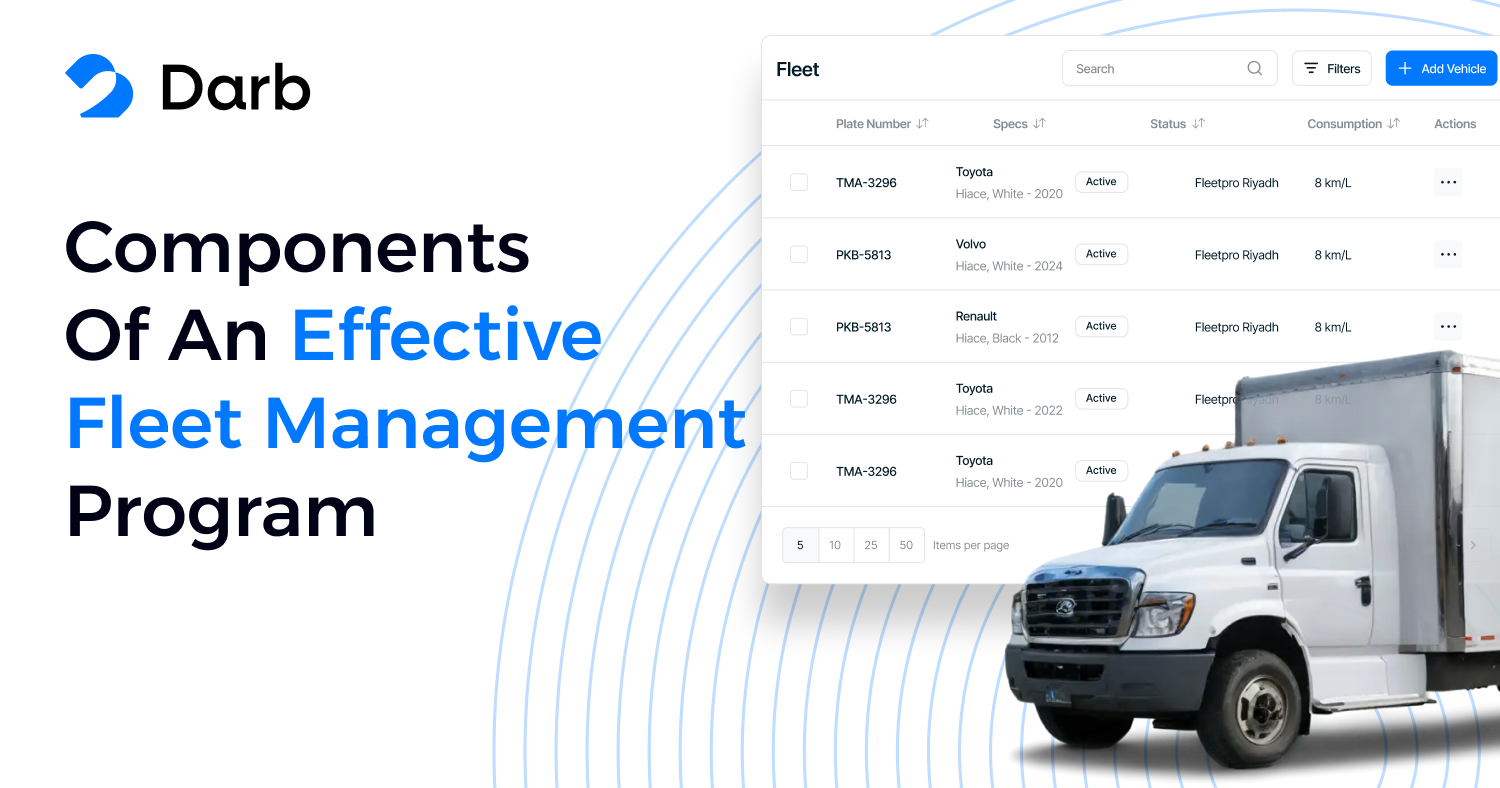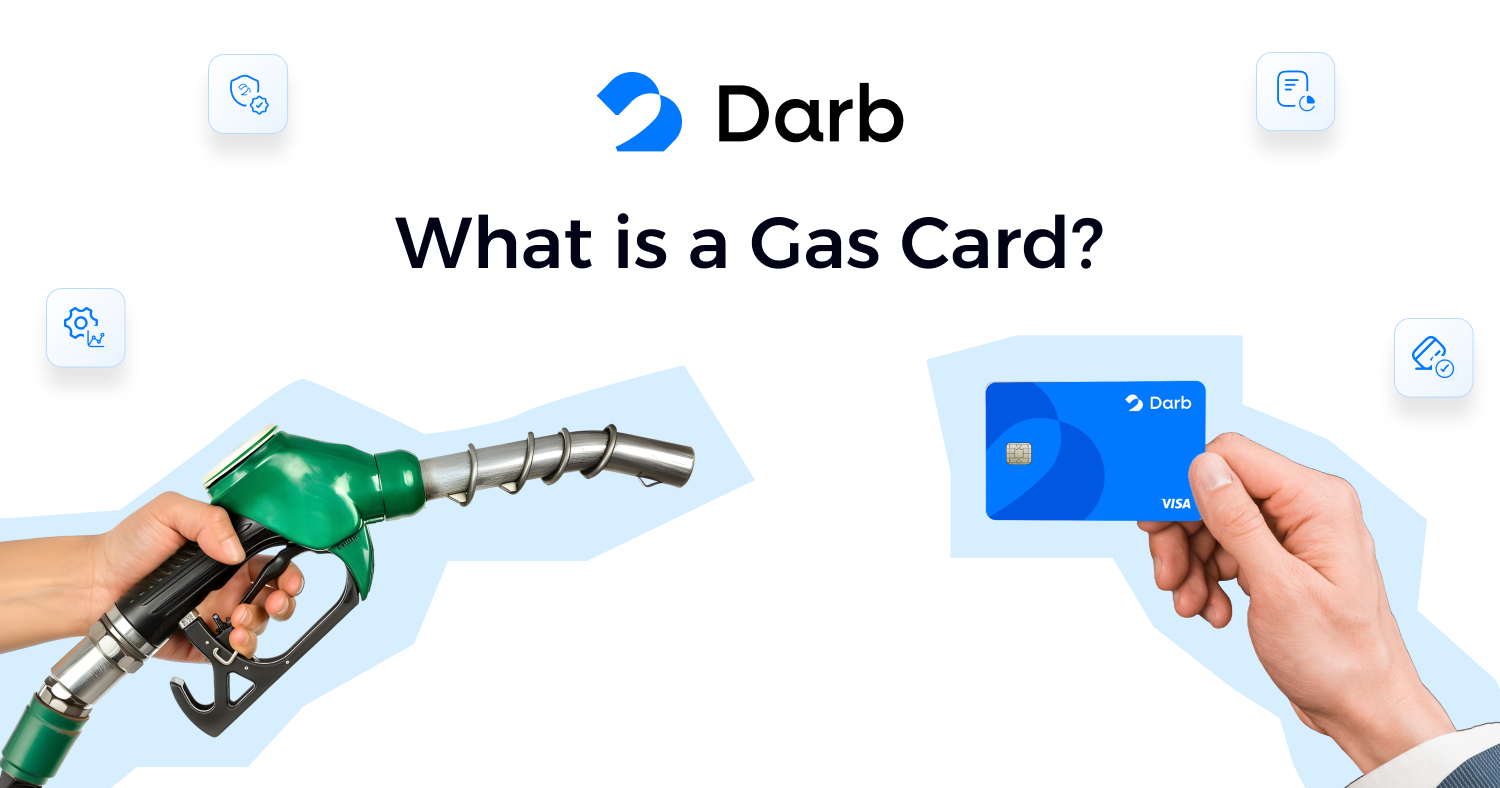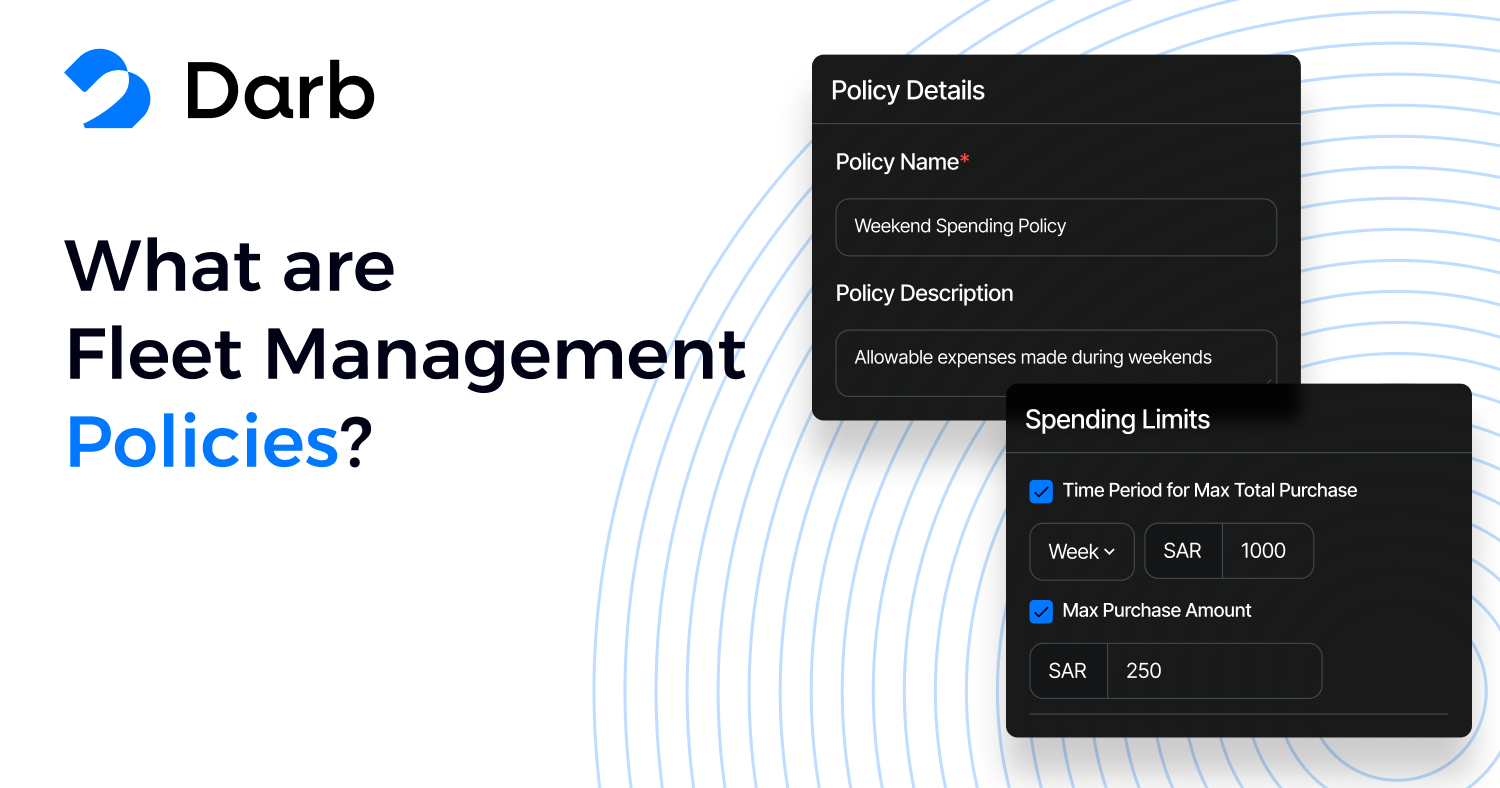- Vehicle Acquisition and Lifecycle Management
- Choosing cost-effective and fuel-efficient vehicles
- Evaluating lease vs. purchase options
- Setting guidelines for vehicle retirement and replacement
- Preventive Maintenance and Repairs
- Routine inspections and servicing schedules
- Use of fleet management software to track maintenance needs
- Partnering with certified service providers for quality repairs
- Fuel Management
- Implementing fuel cards to track and control spending
- Encouraging fuel-efficient driving habits
- Monitoring fuel consumption to identify areas for improvement
- Driver Safety and Compliance
- Comprehensive driver training programs
- Strict adherence to local and federal transportation laws
- Use of telematics to monitor driver behavior and enforce safety policies
- Fleet Tracking and Telematics
- GPS tracking for route optimization and fleet visibility
- Performance monitoring to reduce idle time and increase efficiency
- Automated reporting to analyze vehicle usage and compliance
- Cost Control and Budgeting
- Detailed budgeting for fuel, maintenance, and insurance
- Regular cost analysis to identify potential savings
- Streamlining administrative processes for cost-effective operations
- Compliance and Risk Management
- Keeping up with DOT and FMCSA regulations
- Ensuring proper licensing and certifications for drivers
- Establishing procedures for accident reporting and claims management
- Sustainability and Environmental Considerations
- Transitioning to electric or hybrid vehicles
- Reducing carbon emissions through efficient route planning
- Encouraging green driving habits among drivers






